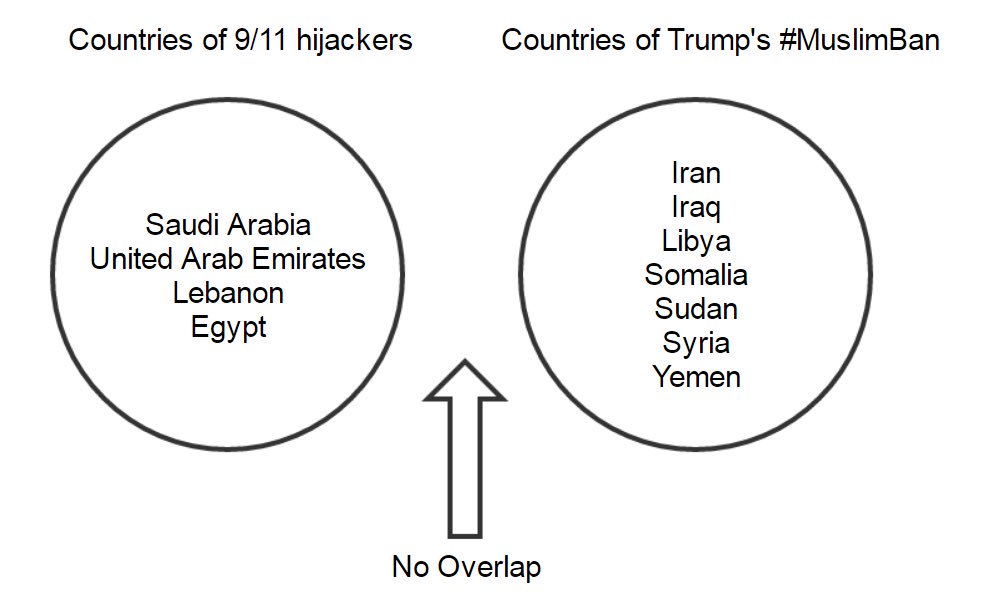Supposedly Trump’s recent executive order has something to do with “radical Islamic terrorists” and even invokes 9/11 multiple times, yet…
(Image H/T Iraqi Expat)
The so-called War on Terror has always had much more to do with duping the domestic population than anything else. It is about control, not security. Of course, this is not uniquely an American thing (nor is it new in history), but America does it best.

I myself was a young conservative patriot who enlisted in the Marine Corps just before 9/11. I bought into the War on Terror myth hook, line and sinker. I discovered by the end of my short military career that the U.S. government often walks hand in hand with terrorists, including radical Islamic terror, when it suits its geopolitical ends.
Recently, I wrote an essay about my journey emerging from the dark cave of the War on Terror myth. Here is a lengthy excerpt from the essay:
…While I remained at my headquarters unit in Virginia, my friend embarked on multiple tours of duty within a short two years as a marine infantryman. I remember even then being surprised and unsettled by how rapidly his overseas deployments came. He was killed by a suicide bomber in Iraq on his third deployment overseas prior to his twenty-first birthday. He had selflessly tried to stop a car laden with explosives as it sped into his checkpoint, possibly preventing more deaths among the nearby group of marines wounded in the attack.
Paul Wolfowitz, considered one of the chief architects of the Iraq War, attended my friend’s funeral at Arlington National Cemetery. More recently, Wolfowitz spent the 15th anniversary of the 9/11 attack on NBC’s Meet the Press shamelessly arguing that he and the Bush administration had done nothing wrong in selling the war and were honest with the American people.
Neither my friend nor I had ever really understood much about the place of his eventual death or the politics of the war. This had been clear during our brief visits together as we reconnected prior to what we didn’t know would be his final deployment to the Middle East. We were never encouraged to learn about the history of Iraq or the Arab world, or to ask too many questions for that matter.
“You’re either with us or against us” was enough for us to want to go out and “win hearts and minds” – a constant refrain in the post-9/11 atmosphere.
As the power of such simple platitudes faded, I began to investigate for myself the history of US involvement in the region. My search began in the library of the Marine Corps University at MCB Quantico, and would later lead to my travelling to Syria after completion of active service.
Few Americans know of the absurd contradictions of our foreign policy in Iraq and other places over the past few decades, yet I soon found that many Iraqis and Syrians know the history well.
The United States, through covert support of the Iraqi Ba’ath Party in the 1960s and 1970s, sponsored Saddam Hussein’s rise to power as a way to combat perceived communist influence and populist national movements in the Middle East. Throughout that time, the CIA-supported Ba’ath engaged in ‘cleansing campaigns‘ which involved door-to-door death squads offing Washington’s enemies, based on questionable lists provided through covert liaisons.





